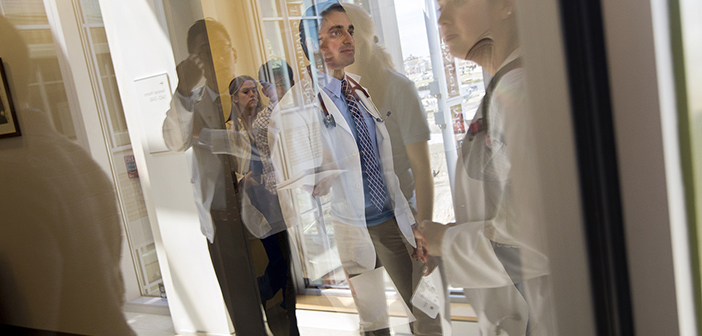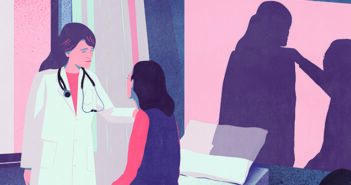Amid epidemic, Rhode Island health care students get real-world training.
Susan, a middle-aged state government accountant, sits in her gown on the examination table, surrounded by a care team. She’s come for her annual checkup, complaining of back pain from a herniated disc diagnosed a year ago.
The team’s two nurses take Susan’s vital signs and ask her to describe her pain. The doctor listens to her breathing and measures her pulse. The social worker asks about life, the physical therapist inquires about the back pain, and the pharmacist asks whether she is taking other medications or has allergies.
Along the way, everyone gently probes for details about symptoms and how she’s managed them. Susan reveals that she only received a month’s supply of the opioid painkiller Percocet a year ago. After that, as her back continued to nag her, she bought the medicine from friends. More recently, to save money, she’s been buying heroin in the park. Twice a day she takes the drug.
“I need it before I go to work,” Susan says.
The team points out the dangers of opioid dependency, but they don’t judge. Instead, they ask for more information as they carry out the routine steps of an annual physical. They ask about her goals for her care. She wants options other than heroin, she says, provided the team can make the pain go away.
“I don’t want to be on this stuff, you know,” she says. “I did what I had to do.”
In reality, Susan is an actor and the care team is composed of students at institutions from across Rhode Island. At the moment, they are still training for the roles they play in this workshop convened by Alpert Medical School. Under the observation of a Rhode Island College social work professor, they are practicing a “patient encounter” that is quite deliberately typical of the state’s opioid addiction epidemic.
Click here to read more.




